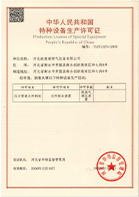
Sep . 25, 2024 16:34
Back to list
فاصل مرشح الغاز
The Gas Filter Separator An Essential Component in Oil and Gas Operations
In the oil and gas industry, the efficiency and safety of operations are paramount. Among the many components that contribute to these objectives, the gas filter separator plays a crucial role. This article explores the significance, functionality, and benefits of gas filter separators in oil and gas processes.
What Is a Gas Filter Separator?
A gas filter separator is a mechanical device designed to separate gas from liquid and solid particles in oil and gas production. It is primarily used to remove impurities such as water, oil, and solids from the gas stream before it is transported or processed further. This separation is vital for ensuring the quality of the gas, protecting downstream equipment, and maintaining operational efficiency.
How Does It Work?
The operation of a gas filter separator involves several key stages. First, the incoming gas stream containing liquid droplets and solid contaminants enters the separator. The device is engineered with a combination of gravitational and mechanical separation techniques.
1. Gravity Separation As the gas moves through the separator, its velocity is reduced, allowing heavier liquid particles and solids to settle at the bottom due to gravity. This gravitational separation is essential for removing larger contaminants effectively.
.
3. Gas Discharge Finally, the filtered gas is routed to a designated outlet for further processing or transportation, while the collected liquids and solids are directed to a disposal area or treated for recovery.
فاصل مرشح الغاز

Benefits of Gas Filter Separators
The implementation of gas filter separators offers numerous advantages
- Enhanced Gas Quality By effectively removing impurities, gas filter separators significantly improve the quality of the gas being delivered. This enhances its market value and compliance with industry standards.
- Equipment Protection The separation of contaminants helps to protect downstream equipment, such as compressors and pipelines, from damage and wear. This reduces maintenance costs and prolongs the lifespan of the equipment.
- Operational Efficiency By ensuring a smooth and uninterrupted flow of clean gas, gas filter separators contribute to overall operational efficiency. This translates into cost savings and improved productivity for oil and gas companies.
- Environmental Compliance The removal of harmful contaminants from the gas stream aligns with environmental regulations and reduces the release of pollutants, further enhancing the industry's sustainability profile.
Conclusion
In conclusion, gas filter separators are indispensable in the oil and gas industry. Their ability to separate gas from liquids and solids not only enhances the quality of the gas but also protects equipment and improves operational efficiency. As the industry continues to evolve, the importance of effective filtration and separation technologies, such as gas filter separators, will only grow. Companies must invest in advanced separation solutions to stay competitive, comply with regulations, and meet the ever-increasing demand for high-quality gas products. With these systems in place, the oil and gas industry can continue to thrive while prioritizing safety and environmental stewardship.
Latest news
-
Safety Valve Spring-Loaded Design Overpressure ProtectionNewsJul.25,2025
-
Precision Voltage Regulator AC5 Accuracy Grade PerformanceNewsJul.25,2025
-
Natural Gas Pressure Regulating Skid Industrial Pipeline ApplicationsNewsJul.25,2025
-
Natural Gas Filter Stainless Steel Mesh Element DesignNewsJul.25,2025
-
Gas Pressure Regulator Valve Direct-Acting Spring-Loaded DesignNewsJul.25,2025
-
Decompression Equipment Multi-Stage Heat Exchange System DesignNewsJul.25,2025

